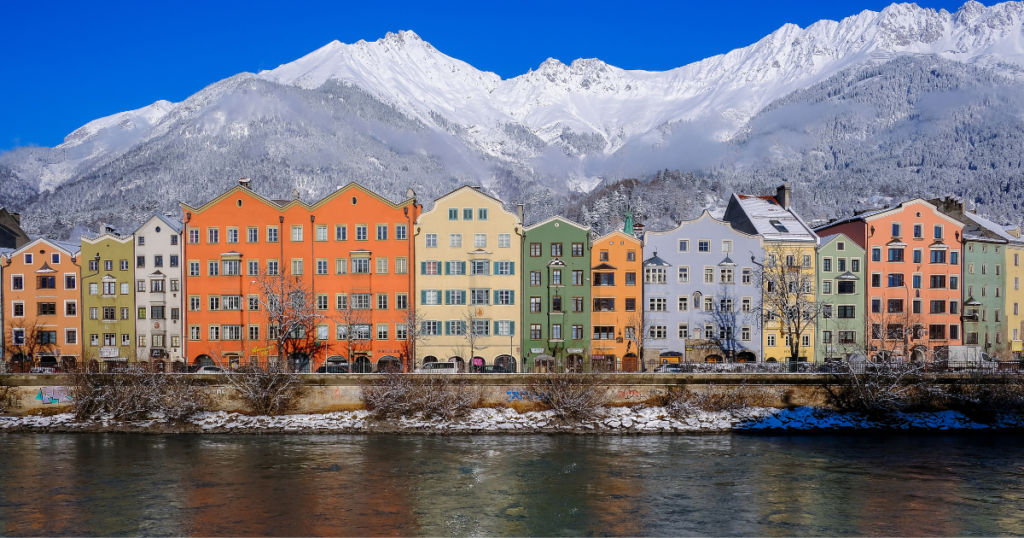How to Apply for an Austria Visa: A Complete Guide to Requirements, Eligibility, and the Application Process
Austria, with its picturesque landscapes, historic cities, and thriving cultural scene, is a highly sought-after destination for travelers, students, business professionals, and immigrants from around the world. If you’re planning a visit, whether for leisure, study, work, or relocation, you’ll likely need a visa, depending on your nationality and the purpose of your stay. This blog post covers everything you need to know about obtaining an Austria visa, including eligibility requirements, application steps, and essential tips.
1. Understanding Austrian Visas: Types and Purposes
Austria issues different types of visas depending on the length of stay and purpose. Here’s a quick overview:
- Schengen Visa (Short-Stay Visa Type C): Allows stays of up to 90 days within a 180-day period for tourism, business, or visiting friends and family. As a Schengen Area member, Austria permits travel to other Schengen countries with this visa.
- National Visa (Type D): For stays exceeding 90 days but less than six months, applicable for specific reasons such as study, internships, or business.
- Residence Permit: For long-term stays, especially for purposes such as employment, family reunification, or study. This permit is often required for stays exceeding six months.

2. Who Needs an Austrian Visa?
The visa requirement for Austria depends on your nationality and the purpose and duration of your visit:
- EU/EEA/Swiss Nationals: Citizens of these countries do not need a visa to enter, reside, or work in Austria.
- Non-EU/EEA Nationals: If you are from a non-EU country, you generally need a visa to enter Austria for short stays. For longer stays (over 90 days), you’ll require a national visa or a residence permit.
- Visa-Free Countries: Nationals of certain countries can visit Austria for up to 90 days without a visa for tourism or business. However, if the visit extends beyond 90 days or has specific purposes like study or work, a visa or residence permit will be needed.
3. Austria Visa Eligibility Requirements
For each type of visa, eligibility requirements vary. Below are some common factors:
- Schengen Visa (Type C) Eligibility:
- Purpose: You must have a clear reason for your short stay, whether it’s tourism, visiting family, attending a business conference, etc.
- Financial Means: Demonstrate sufficient funds to cover your stay and return expenses.
- Intent to Leave: Evidence that you’ll return to your home country after your visit, such as a return flight ticket and proof of employment or property ownership.
- National Visa (Type D) and Residence Permit Eligibility:
- Purpose-Specific Requirements: For example, students need proof of enrollment, while employees must provide a job offer from an Austrian employer.
- Health Insurance: Health insurance covering the duration of your stay is typically mandatory.
- Accommodation: Proof of where you’ll live during your stay, like a rental contract or a letter from a host.
- Financial Means: Documentation showing that you can support yourself financially in Austria.
- General Requirements for All Visa Types:
- Passport Validity: A valid passport with at least two blank pages, issued within the last 10 years, and valid for at least three months beyond the intended stay.
- Clean Criminal Record: Certain visa types, especially for work or residency, may require a background check.
4. Austria Visa Requirements: Essential Documents
While specific document requirements may vary depending on the visa type, here’s a comprehensive list of typical documents you’ll need:
- Passport: Original passport with at least two blank pages and a minimum validity of three months post the intended stay in Austria.
- Visa Application Form: Completed and signed application form. For Schengen visas, a standard Schengen application form is required.
- Photographs: Two recent passport-sized photos that meet Schengen photo requirements (35x45mm, white background, taken within the last six months).
- Proof of Purpose:
- For tourism: An itinerary or hotel reservations.
- For business: An invitation letter from the Austrian business partner or details of the conference/event.
- For study: Admission letter from an Austrian educational institution.
- Financial Proof: Bank statements or payslips from the last three to six months to show you can financially sustain yourself during your stay.
- Travel Health Insurance: For Schengen visas, insurance coverage of at least €30,000 is required, valid throughout the Schengen Area.
- Proof of Accommodation: Confirmed hotel reservation, rental agreement, or invitation letter from a host.
- Travel Itinerary: Flight bookings showing entry and exit dates.
- Additional Documents for Long-Stay Visas and Residence Permits:
- Criminal record certificate
- Health certificate for certain visa types
- Birth or marriage certificates for family reunification applications.
5. Step-by-Step Austria Visa Application Process
Applying for an Austrian visa involves several steps. Here’s a detailed breakdown:
Step 1: Determine Your Visa Type
First, identify which visa suits your purpose. For example, if you plan to visit for less than 90 days, a Schengen Visa may suffice. For a study or work stay longer than 90 days, consider a National Visa or Residence Permit.
Step 2: Gather the Necessary Documents
Each visa type requires specific documentation. Make sure you have all required documents, including a valid passport, application form, photos, proof of funds, and travel insurance.
Step 3: Complete the Application Form
Fill out the visa application form accurately. Double-check all details, as errors can lead to delays or rejection.
Step 4: Schedule an Appointment at the Austrian Embassy or Consulate
Most applicants need to attend an in-person appointment. Schedule this appointment online through the Austrian embassy or consulate in your country. If applying for a Schengen Visa, you can also apply through a visa application center (like VFS Global).
Step 5: Attend the Austria Visa Appointment and Submit Your Application
Bring all required documents to your appointment. During the appointment, you may have a short interview where you’ll answer questions about your travel purpose, itinerary, and financial situation.
Step 6: Pay the Visa Fee
The visa fee varies depending on the type of visa and the applicant’s age (children under 6 are often exempt from the fee for Schengen visas). Fees for short-stay Schengen visas are typically around €80 for adults, while long-stay visa fees may vary.
Step 7: Wait for Processing
Schengen Visa processing times typically take around 15 days, while long-stay visas or residence permits may take several weeks or even months.
Step 8: Collect Your Austria Visa
Once your application is approved, collect your visa from the embassy, consulate, or visa application center where you applied.

6. Austria Visa Fees
The fees vary by visa type and age of the applicant:
- Schengen Visa: €80 for adults, €40 for children between 6-12, and free for children under 6.
- National Visa (Type D): Typically ranges from €100 to €150.
- Residence Permit Fees: These vary based on the type of residence permit and purpose, ranging from €80 to €160.
7. Austria Visa Processing Times
The average processing time depends on the visa type:
- Schengen Visa: 15 working days
- National Visa: 3 to 6 weeks
- Residence Permit: 8 to 16 weeks
It’s advised to apply for a Schengen Visa at least three weeks before your intended departure and a National Visa or Residence Permit three to four months prior.
8. Tips for a Successful Austria Visa Application
- Be Thorough: Provide all required documents in full, including supporting documentation to reduce delays.
- Double-Check Your Application: Ensure all form fields are complete, accurate, and error-free.
- Be Honest and Transparent: Answer all questions honestly during the visa interview if required. Inconsistencies can lead to rejection.
- Plan Ahead: Apply well before your travel date to account for possible delays.
- Check Your Insurance Policy: Ensure your travel health insurance policy meets Schengen requirements, covering the entire Schengen area with sufficient coverage.
9. Common Reasons for Austria Visa Rejection and How to Avoid Them
- Incomplete or Incorrect Documentation: Double-check your paperwork and confirm you have all necessary documents.
- Financial Insufficiency: Provide clear evidence of adequate funds for your stay. Bank statements are usually required.
- No Clear Purpose or Lack of Accommodation: Clearly state your purpose of visit and provide confirmed bookings or an invitation from your host.
- Passport Issues: Ensure your passport is valid for at least three months beyond your intended stay and has two blank pages.
- Previous Visa Violations: Previous overstay or violations in the Schengen Area can lead to rejection.

